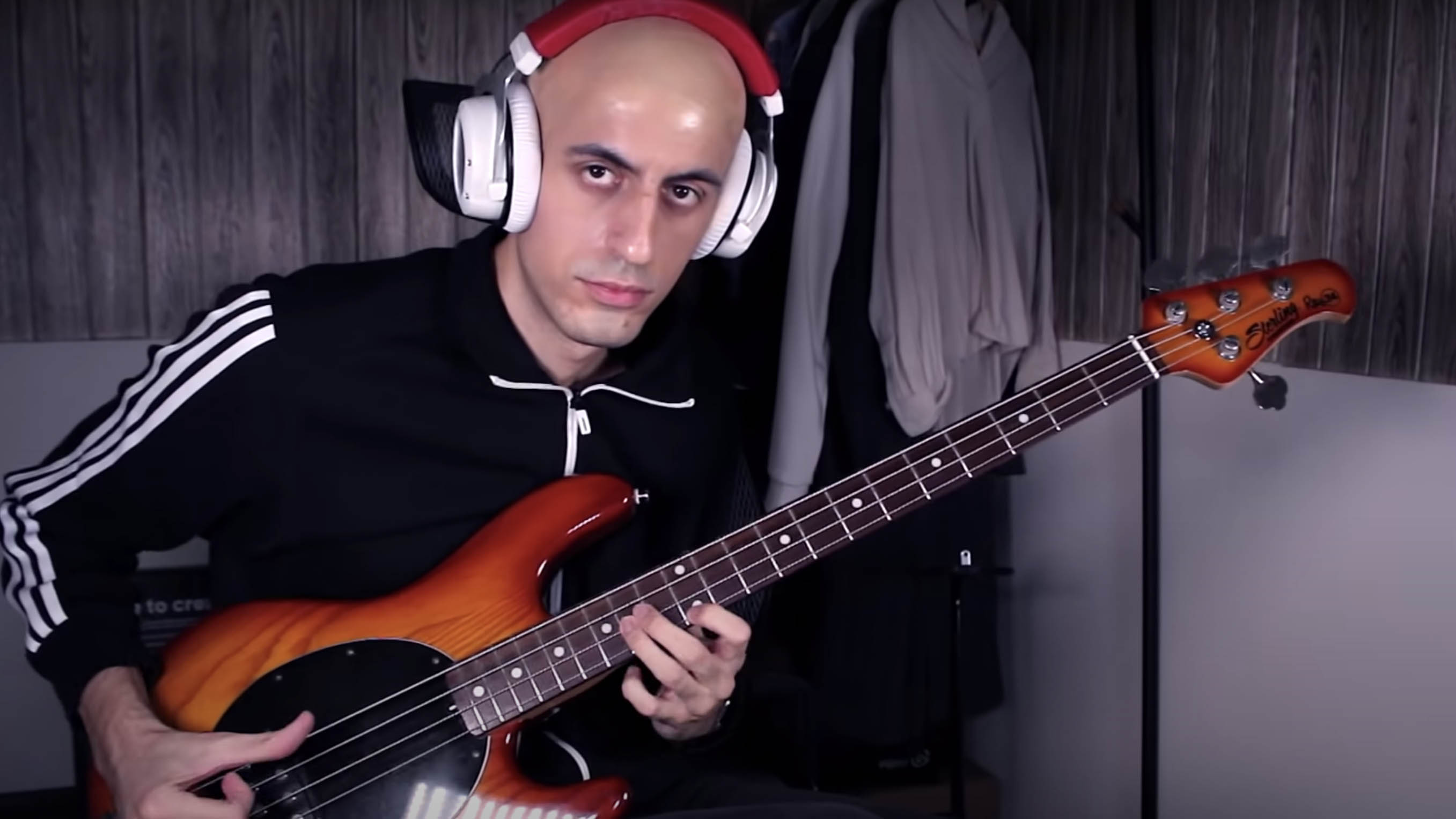The greatest bassists of the 21st century, ranked by you!
GOAT Hunt: These are the 10 electric bass players that you chose as the best between the year 2000 and, well, now

Want all the hottest music and gear news, reviews, deals, features and more, direct to your inbox? Sign up here.
You are now subscribed
Your newsletter sign-up was successful
GOAT Hunt: Our epic quest to put together the ultimate fantasy band line-up assembled entirely of the players who are considered by you, the esteemed MusicRadar readers, the Greatest Of All Time continues.

Today, we're able to reveal the players you considered to be the greatest bassists of the 21st century (so far).
The top 10 players in your ranking, below, will next go head-to-head with our winningest pre-80 and 80-99 stars for the battle to determine the one true bass GOAT.
Stay tuned, and check out the other runners and riders...
• The greatest pre-1980 bassists, ranked by you
• The greatest bassists 1980-'99, ranked by you
1. Davie504
Would you believe it if we told you that this infamous Italian YouTuber took almost half of all the votes for this sector of our GOAT bass poll? Numbers in general can be hard to grasp in Davie’s case, as he has over 9.3 million YouTube subscribers and countless more on other social media, but it’s important to remember that the man is a phenomenal bass player and has earned the No. 1 slot. In fact, with a reach like his, it’s arguable that he’s doing more to spread the word about bass to a young, online audience than anyone else on the planet.
Want all the hottest music and gear news, reviews, deals, features and more, direct to your inbox? Sign up here.
2. Joe Dart (Vulfpeck)
Who would have thought that '70s funk would be reborn and redefined in the 21st century by a bunch of college kids and their firebrand bass player? The name ‘Vulfpeck’ (it’s something to do with ‘Wolf Pack’, we think) was first heard in underground circles around 2011, with the question “Have you seen Joe Dart play?” spreading throughout our community. As well as insanely evolved chops, this band has a sense of humour, releasing the Sleepify EP in 2014: the idea was that you played this silent album on loop on Spotify and went to bed, thus earning Vulfpeck mucho cash.
3 Robert Trujillo (Metallica)
Metallica’s third proper bass player after Cliff Burton and Jason Newsted deserves all of our praise. First, he’s been in the world’s biggest metal band since 2003, making him their longest-serving bassist. Second, he’s an absolute monster player, powering through funk, rock and metal styles with ease and panache. Third, he produced a documentary, Jaco, in 2012, telling the tragic story of Jaco Pastorius. Finally, he bought Jaco’s famous ‘Bass Of Doom’ and restored it to the Pastorius family. What a splendid fellow.
4. Chris Wolstenholme (Muse)
If you’re a bass player, you’ve probably tried to play Muse bassist Chris Wolstenholme’s signature piece – the intro to the prog-rock trio’s 2003 hit ‘Hysteria’. Like most of us, you will have failed to replicate his lightning-fast fingerstyle and super-crunchy tone, but there’s no shame in that, because like most things recorded by Wolstenholme over the last 20 years, that part is an absolute swine to play. The fact that he delivers the goods on a beautiful signature Status bass just adds to our envy.
5. John Myung (Dream Theater)
Possibly the most technically gifted bassist in the world today, with the arguable exception of Mr V. Wooten, Dream Theater’s founding member John Myung specialises in high-speed playing of terrifying complexity. This is just as well, because the rest of his band are equally adept on their instruments, resulting in a barrage of melodic, metallic harmony that has redefined heavy music since the Nineties. Like many a genius, Myung is a quiet, introspective individual, allowing his playing to do the talking, which is a refreshing change in the opinionated world of bass.
6. Justin Chancellor (Tool)
What is it about Tool that makes them unique? Perhaps it’s because their music is so unnerving, while they themselves are essentially a fun-loving bunch of geezers. Maybe it’s because their music is basically metal, but non-metal-lovers worship them. In the specific case of bassist Justin Chancellor, there’s an unusual contrast in that he’s a Brit in a band of Americans: last time we spoke to him, he jokingly complained that he couldn’t find a pint of Stella in California. Either way, his bass grooves sit beautifully against the often complex music that his band makes, helped by an array of tone-boosting hardware.
7. Tim Commerford (Rage Against The Machine, Audioslave)
There’s a whole lotta metal bass players on this list, perhaps because that genre is where most progression is currently taking place when it comes to the low end. Then again, RATM’s bassist Tim Commerford is far from just a metal guy, as you’ll know if you’ve heard the funk-heavy approach he took on those immortal Nineties Rage albums, the Audioslave stuff that followed, and the punk rock and EDM-influenced bass parts that he’s delivered with Wakrat and Future User in recent years.
8. Shavo Odadjian (System Of A Down)
For a band that hasn’t released any new material for the last 16 years, System Of A Down are still very much part of the conversation. Their affable bass player Shavo Odidjian hasn’t exactly set the world alight with any of his side projects since SOAD ran out of creative momentum in 2005, but every time System play live, it’s still an event. Perhaps those early hits were just too good to be forgotten; after all, readers of our sister mag Metal Hammer recently voted the signature SOAD song ‘Chop Suey!’ the best song of the millennium so far.
9. Mohini Dey
Bengali bassist Mohini Dey, only 25 as you read this, is an absolute force of nature when it comes to the bass guitar. Her background is fusion and jazz, but she sails effortlessly through the most demanding of bass parts, from rock to funk to metal and beyond. She was one of the first of the current wave of young, spectacularly advanced bass players, first making herself known in her late teens. Musicians such as Steve Vai have utilised her talents on sessions since then, while she also records and tours as a solo artist and bandleader.
10. Thundercat
Stephen Bruner, as nobody calls him, isn’t just a bass player – he is a whole way of approaching life, built on a philosophy somehow espoused in the kid’s cartoon whose name he has adopted. We say ‘somehow’ because Thundercat doesn’t really explain his thoughts or methods, preferring to remain opaque. This approach serves his unclassifiable music well, allowing him to express himself in a wide range of environments, as he’s done with artists from Suicidal Tendences to Erykah Badu. Check out his incredible hollow-bodied Ibanez bass, too – it has its own, wholly unusual charm.